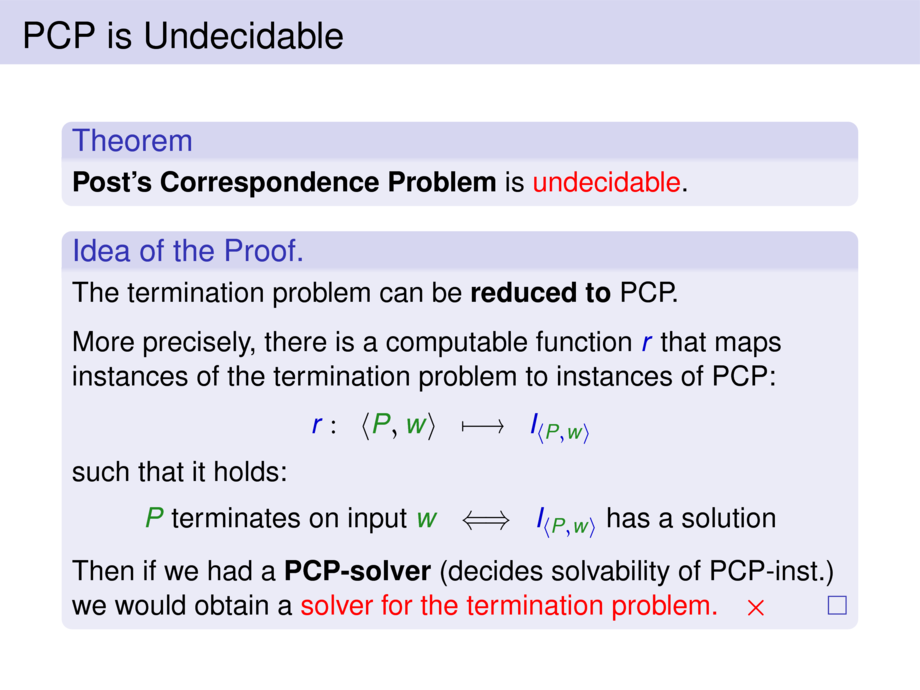



































































































60/162
\begin{frame}{PCP is Undecidable}
\begin{block}{Theorem}
\emph{Post's Correspondence Problem} is \alert{undecidable}.
\end{block}
\pause
\begin{proof}[Idea of the Proof]
The termination problem can be \emph{reduced to} PCP.\pause{}
\medskip
More precisely, there is a computable function $\dm{r}$ that maps
instances of the termination problem to instances of PCP:\vspace*{-1ex}
\begin{align*}
\dm{r} \funin \;\;
\pair{\forestgreen{P}}{\forestgreen{w}}
\;\; & \longmapsto \;\;
\mediumblue{I_{\pair{\forestgreen{P}}{\forestgreen{w}}}}
\\[-1ex]
\intertext{such that it holds:}
\\[-4ex]
\text{$\forestgreen{P}$ terminates on input $\forestgreen{w}$}
\;\; &\Longleftrightarrow \;\;
\text{$\mediumblue{I_{\pair{\forestgreen{P}}{\forestgreen{w}}}}$ has a solution}
\end{align*}
\pause\vspace*{-3ex}
Then if we had a \emph{PCP-solver} (decides solvability of PCP-inst.) % (a solver for PCP-instances),
we would obtain a \alert{solver for the termination problem.} $\;$ \alert{$\xmark$}
\end{proof}
\end{frame}

